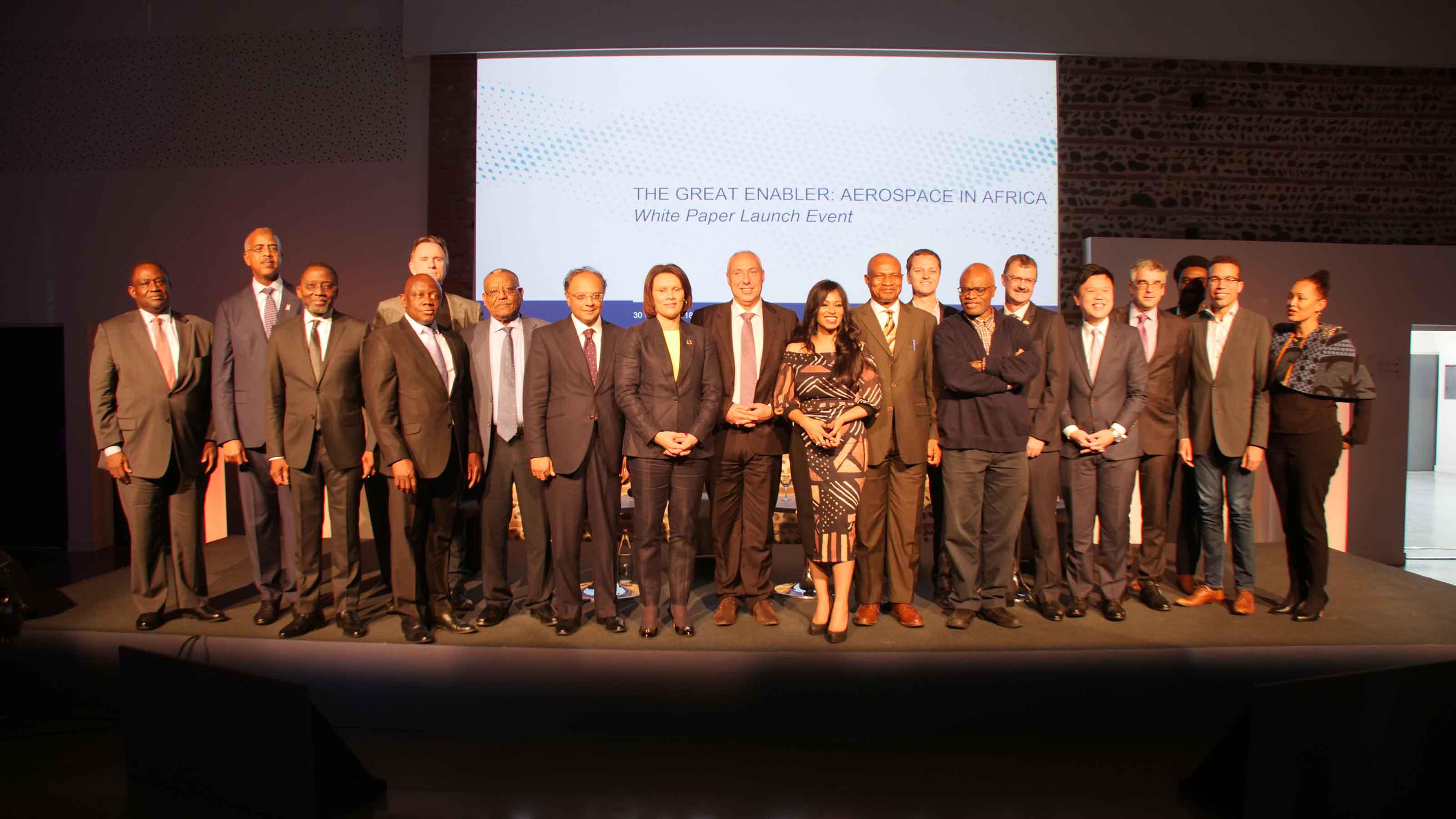
Airbus on Tuesday released The Great Enabler: Aerospace in Africa – a White Paper on the role of aerospace technologies and their impact on socio-economic development in Africa.
The extensive report looks at how different segments of the industry can address a core set of challenges on the continent by: increasing access to healthcare; enhancing food security by making African agriculture more competitive and sustainable; promoting education, training and innovation; empowering businesses with innovative products and solutions; and breaking down barriers to the movement of people and goods across Africa.
The report was officially launched at a special summit convening African government officials, policymakers, business leaders, entrepreneurs, intergovernmental bodies and multilateral development organisations in Toulouse, France.
“The aerospace industry offers solutions to many of the socio-economic challenges Africa is facing on the path to sustainable development. A paradigm shift from thinking about aerospace as an isolated industry to a key enabler of socio-economic change is necessary to realise its benefits for a prosperous future. That is what this White Paper is aiming at, by highlighting different ways in which aerospace technology can support social and economic development in Africa,” said President Airbus Africa Middle East, Mikail Houari.
The white paper analyses the role of aerospace technologies in sectors with the greatest possible impact on social and economic development including manufacturing and industrialisation, civil aviation, agriculture, healthcare and humanitarian assistance:
On manufacturing and industrialisation, many African countries are final consumers in the global aerospace value chain. Joining the ranks of producers in this value chain is challenging for many but not impossible. The examples of Africa’s current leaders in aerospace – South Africa, Tunisia and Morocco – demonstrate the complexities but also the opportunities for African countries to develop aerospace manufacturing and industrialisation capacity. Key among these opportunities is Africa’s potential demographic dividend, which will be achieved by investing in its youthful and increasingly techno-savvy population.
In the aviation sector, Airbus observed that the key question remains how to connect people to markets and goods in a faster, cheaper and more efficient way in order to maximise the sector’s role as an economic engine and a vehicle for greater integration in Africa.
Airbus said agriculture is perhaps the most consequential pillar of the continent’s sustainable development. However, despite employing more than 60 percent of Africa’s population, the sector contributes only about 15 percent of the continent’s GDP as underlying challenges persist. Aerospace technology such as precision farming could potentially reverse this situation by enabling farmers to produce more with less.
In terms of access to healthcare, Airbus noted that this is still a challenge for many rural populations. While building on the existing technologies in the sector – such as air ambulances – new technology will further change the dynamics of access to medical care and emergency response in terms of quantity, distance and data collection.
The report also stresses the need for clear government policies to harness the power of aerospace technology, concluding with key recommendations on human capital development, partnerships and financing.
The research was based on 30 in-depth interviews with a cross-section of stakeholders including: African Union Commission, United Nations Economic Commission for Africa, African Development Bank, United Nations World Tourism Organisation, World Bank, International Finance Corporation, Kenya Red Cross, International Air Transport Association
African Airlines Association, South African National Space Agency, Nigeria’s National Space Research and Development Agency, Airbus Bizlab, Farmerline, Air Mauritius, Air Seychelles, Congo Airways, Fastjet, Overland Airways, Aerosud, Denel Aerostructures, Lazard, MARA Group, One2Five Advisory, Ag.Aviation Africa, ch-Aviation.
On how government policies impinge on development of aviation and the distribution of goods in Africa, the former Managing Director of the Federal Airports Authority of Nigeria (FAAN) Richard Aisuebeogun observed that poor policy implementation among other factors are the major reasons why the continent is behind in aviation development. Being the second largest continent in the world, aviation experts believe that interconnectivity would boost the region’s economy through trade, encourage manufacturing, as it would be easier to move manufactured goods among the countries in the continent than to import from Asia, Europe and the Americas. It would also boost tourism.
Aisuebeogun said the inability of states to implement policies that would encourage and enhance airline growth in many countries in Africa has led to the failure of many airlines in the continent both state and privately carriers.
“A report of survey carried out in May, 2016 says over the past 12 years nearly 37 airlines were launched in Africa, and almost all of them had failed – 25 of which are from Nigeria. Today only about 12 Africa Airlines have inter-continental operations. The more we realise that airlines are not a luxury but a necessity in our remote villages and hub cities, the more we can change our thinking and make sustained efforts to ensure that airlines are supported and developed for the accelerated development of our economies and improvement of our livelihoods,” Aisuebeogun said.






